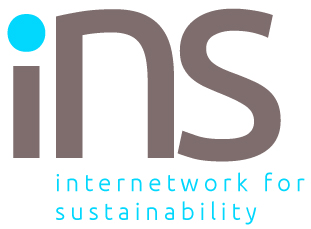While climate change hits hard, the incoming US President continues to deny it. As the impacts of climate change become impossible to ignore, the incoming president remains steadfast in his denial. Meanwhile, global warming has surpassed the critical threshold of 1.5 degrees Celsius for the first full year, and political developments are taking on dangerous dimensions—fueled in part by the opportunities created by climate change. The term “crisis” almost needs a superlative.
The hottest year ever now refers not only to the climate but also to the political landscape, which is heating up on a scale not seen since the days of our ancestors. The connection between the two is undeniable: a fierce battle is underway over the spoils of climate change.
The Spoils of Climate Change?
For countries like Canada and Russia, a warmer climate brings not only challenges but also opportunities. As temperatures rise, vast new territories open up for agriculture in both nations. The melting Arctic ice is creating access to northern shipping routes and unlocking resources like oil and critical minerals in Greenland and its surroundings. China is also vying for a piece of the action.
Unsurprisingly, these nations are at the center of attention for the incoming leader of what calls itself the strongest country on Earth: the United States of America.
The US depends on Canada for a staggering 60% of its crude oil imports, making it its largest foreign supplier. Canada is also becoming increasingly vital for food security. The US agricultural sector is already struggling with the effects of a warming climate, including droughts and extreme weather events that cause significant and growing damage. In contrast, Canada’s expanding agricultural lands offer the potential to compensate for losses in the US, ensuring the country doesn’t become dependent on foreign food sources.
However, Donald Trump’s personality ensures that access and cooperation are not enough to satisfy his appetite for control. He wants outright ownership—much like Putin with Ukraine. This desire may explain his interest in acquiring Greenland, despite its lack of necessity for controlling northern shipping routes, which the US already influences through NATO—unless, of course, the US were to leave NATO.
Adding to this is Trump’s obsession with size (a recurring theme during his campaigns, where he often exaggerated the size of his rallies compared to his opponents’). Acquiring Canada would make the US geographically the largest country in the world. A united US and Canada would surpass Russia in size and be twice as large as China.
Finally, Greenland’s resources also align with America’s ambitions in Bitcoin mining and artificial intelligence (AI). Its abundance of critical rare earth metals is crucial for producing chips and components for electrification, while geothermal energy offers a clean, cost-effective power source for Bitcoin mining and AI server farms.
Bad News from the Climate Front
While climate change may fuel aggressive geopolitics, it simultaneously poses a severe threat to such ambitions. Denial won’t help, and history teaches that fighting wars on three fronts is a losing strategy. Two fronts are usually enough to spell disaster, and the US is already engaged in economic conflicts with both Russia and China. Additionally, it is fighting a war against the climate itself, which caused hundreds of billions of dollars in damage over the past 12 months, erasing the year’s economic growth entirely.
These mounting climate-related losses will also influence the ideological battles within the US, which could escalate into a full-blown civil war. After all, it’s unsustainable to keep blaming hurricanes like Milton and Helene or wildfires in Los Angeles on the Democrats.
The Cost of Denial
Whether we like it or not, climate change will remain the driving force behind ecological, economic, and political developments this year and for many years to come. The risks are impossible to quantify precisely, and the complexity has grown to the point where it generates its own independent dynamics.
Former US Defense Secretary Donald Rumsfeld was known for his straightforward classification of risks. “There are things we know, things we know we don’t know, and the greatest risks are things we don’t know we don’t know.” Donald Trump adds another significant risk: the things he refuses to know. The consequences of that denial will become undeniable—even for him. The question for the rest of us is: what will it cost the world?




